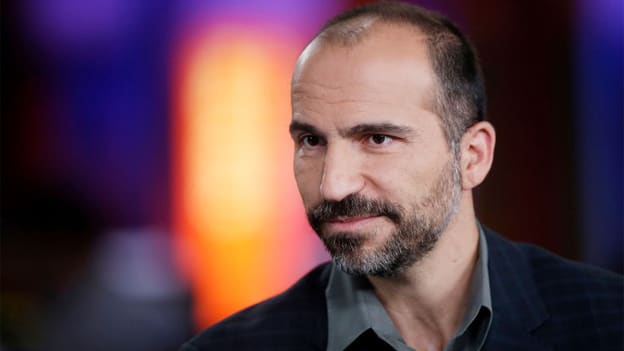Uber's new CEO: Will he be able to chart a new path for success?

Every start-up must ensure that it passes through not one but many thresholds in its journey towards a productive future. Change has been one of the oldest force guiding this. Change that ensures growth and sustainability. That enables a shift from bad practices to healthy ones. And to help catalyze this, start-ups often bring in a new face that mobilizes and streamlines their resources effectively. A similar situation seems to be in front of Uber who recently appointed its new CEO Dara Khosrowshahi.
The company has been in the middle of multiple scandals in past couple of years. Many have pointed out that these issues arrive either as a direct result of the ex-CEO Travis Kalanick behavior or his business choices or are influenced by the “allegedly toxic and discriminatory culture that he helped to create”. This presumably reached a point where both the investors and the board felt that it was better to let him go, hoping to curtail the onslaught of negative attention, and guide the company towards a more productive future. A future perhaps where the company grows in relative peace.
That’s one possibility why the board mandated that Kalanick had to go. And by appointing Dara Khosrowshahi, the intent seems to be to redeem its image and gain market shares.
“As Khosrowshahi attempts to steer the company into a new direction, a key part of improving the financial performance would be to influence the corporate culture in a positive manner.”
He now has the task to change the image and culture within the company which cost Kalanick his job. Looking at Khosrowshahi’s relatively unknown but impressive performance record—under his leadership, Expedia has gone from $15 billion company to a $72 billion valuation in 2016— one can understand his selection.
The new CEO has the task of reviving the company image and performance in a manner that benefits all the Uber stakeholders. Articulating the problem quite clearly, Brian Kropp, the head of the human-resources practice at Gartner added, “Uber’s clearly in a situation where small changes, simple policy adjustments, those sorts of things, weren’t going to satisfy the investor community, the customer base, and the employee base. This becomes even more vital now given how competitive the cab hiring market has got. Companies like Lyft, Gett, Didi Chuxing, Grab and many others have started to emerge and this has over the years shortened market shares and as a result, the financial problems had worsened over the years.
Khosrowshahi, though, seems to understand that his new stint wouldn’t be a path of roses. Calling his decision to leave Expedia as one of the “toughest decisions” of his life, Khosrowshahi adds in a memo, “I have to tell you I am scared. But the times of greatest learning for me have been when I’ve been through big changes, or taken on new roles — you have to move out of your comfort zone and develop muscles that you didn’t know you had.”
And it might just be this combination of a positive approach towards problems solving and an ability to work in relative stealth that ends up being beneficial for a company whose every move is closely monitored by the mainstream media. It helps the new leader focus on two key things— evolving financially sound business models and creating a corporate culture that allows the company to sustain its growth, without inviting unnecessary attention. A culture which in turn helps the company have healthy people practices.
With a refreshing approach towards creating a good corporate culture , Khosrowshahi seems to be the antithesis of a “hero CEO”. Given his experience handling a diverse workforce of 20,000 at the time of his departure from Expedia, Khosrowshahi is definitely equipped to bring in the changes Uber so desperately seems to need. He has spoken about the need to create a workplace where employees are treated as humans and not numbers, while Expedia has, under him, managed to create one of the most gender balanced workforces for a tech company.
While all this experience would be beneficial for Khosrowshahi, existing conditions within Uber won’t make turning Uber into a profitable venture any easier. Although, Travis Kalanick expressed his support for Khosrowshahi saying in a statement that “casting a vote for the next chief executive of Uber was a big moment for me and I couldn’t be happier to pass the torch to such an inspiring leader,” he still remains on the board of directors for the company. The company still needs to fill certain senior leadership posts like CFO, COO, CMO, after many who left earlier this year. In addition, work culture and office dynamics often have an inelastic behavior and their stickiness means that it usually takes a long time for a change in leadership to influence corporate culture.
After much public speculation on who would become the CEO, the Uber board has finally made up its mind. With people like GE Chairman Jeff Immelt and Hewlett Packard’s Meg Whitman being part of the speculation, the appointment of Khosrowshahi might just be the first step towards a more productive future and surpass its current threshold.

















